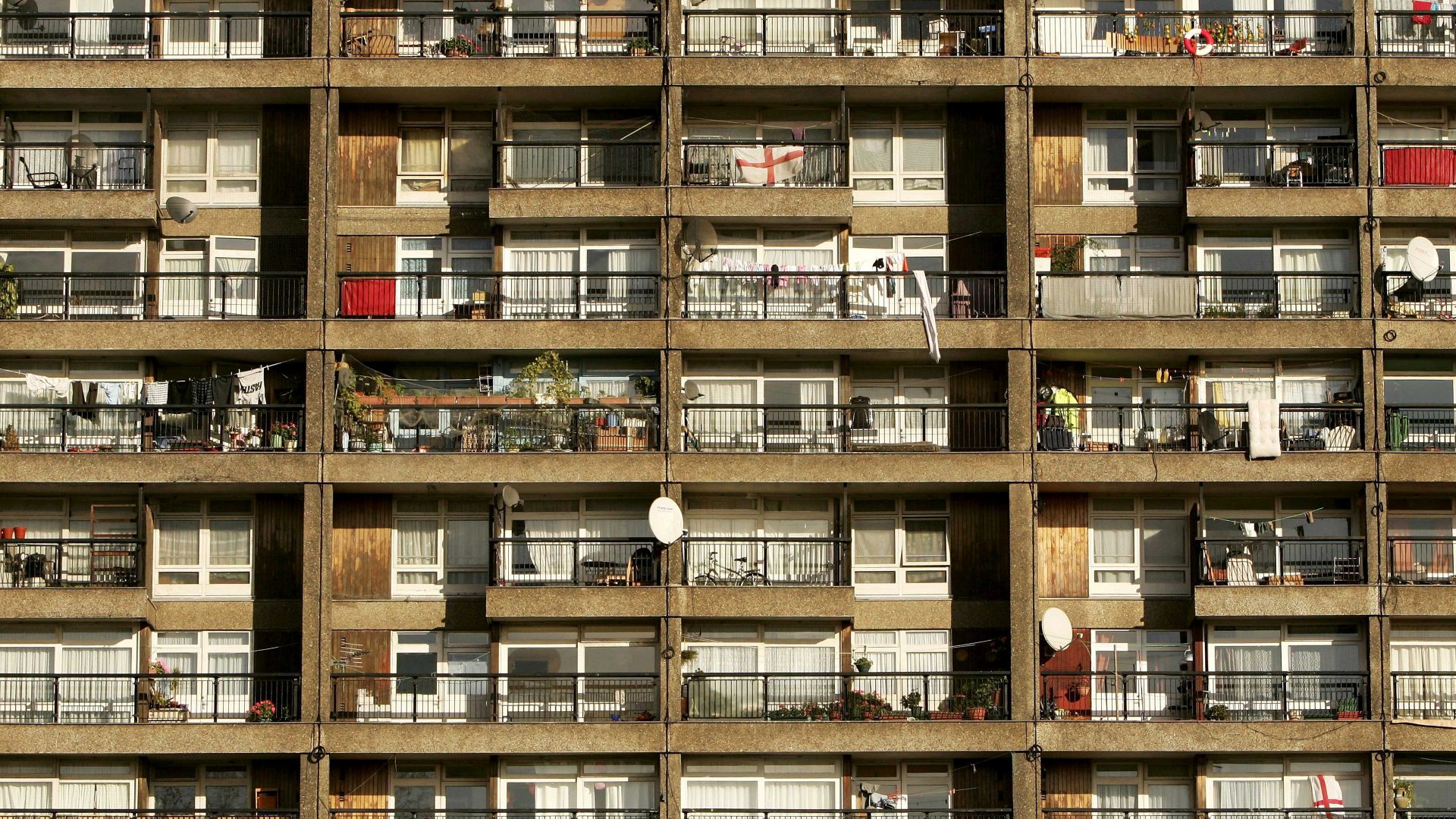A friend who’s inherited a chunk of change asks me to go with him and view some properties in my neighbourhood, with a view to buying one for rental. The ethics of this trouble him quite as much as me – although he’s too young to’ve actually witnessed the great fire sale of British social housing in the 1980s and 90s.
I’m not. I actually had a council tenancy in the mid-1980s, and when I left the flat to get married, I gave it up. My co-tenant wasn’t so scrupulous: he moved his partner in, and together they bought it from the council for just 50% of its market price. In due course they sold the place on and used the bunce to buy a much bigger, bourgeois establishment.
But that was then – this is now. Most of the social tenants around here have long since been given the option: accept being hived off to housing associations of one form or another, or remain under the aegis of the council, with this consequence: when it comes to any repairs and refurbishment, you’ll get the shittiest end of a notably excremental stick.
Which was obviously the case with the first estate we visited, which consisted of five-storey interwar red brick blocks arranged around a roughly triangular courtyard. This open space was really the best thing about the place: large mature-growth trees, and plenty of herbage – it being midsummer. As for the flats themselves – almost all of the old walk-ups no longer qualify for the ascription, the staircases having been long since fitted with safety doors and intercom entry systems.
Not these, though – so I wasn’t surprised, after climbing three flights, when I asked the agent who the freeholder of the flat was, and he replied “the local authority”. Frankly, I wouldn’t mind being the local authority, in a Judge Dreddish sort of a way. And if I were jury and executioner into the bargain, I’d’ve given the smug young fellow in his suit trousers and striped Charles Tyrwhitt shirt a bop on the nose.
A nose he more or less held as he knocked on the door of the flat, then exchanged a few words with the man who came to the door: “He’s just one of the tenants,” he explained – then ushered us in. I said: “He isn’t just a tenant, he’s a person, and this is his home.” And the agent looked at me incredulously.
The second I crossed the threshold I could see why. The agent presumably sees living arrangements like this all the time – but I doubt he ever thinks of them as homelike: not tiny flats in which both minuscule bedrooms and the pitiful living room are being used to sleep, eat and live in. There was the man who let us in, who was up and dressed – and two more in their rooms. I say “their” rooms, but since it was five in the afternoon, I suspect they were working night shifts, and may have been hot-bedding.
The man who was up showed us his 100 square feet of domestic space: clothes hung from nails hammered into the perished plaster walls, others piled on broken chairs. A bed mounded with grubby sheets and covers. A whiteboard was propped up on a chair, and written on it was what looked like a study timetable – an impression confirmed by the books stacked on the floor, which had titles like Diabetes Care in Geriatrics; although there was also one on the history of Biafra.
From all of this, together with the pale blue tunic hanging on the back of the door with a name badge on it identifying its wearer as an employee of the local NHS trust, I made this not very difficult deduction: this man was a nurse, studying for his specialist exams in geriatric care. The man in the second room was supine in bed. His space was no bigger, and dominated by a flat-screen television. As for the third room, this had so much stuff in it, it was hard to see its occupant at first – but eventually we spotted him, hidden behind a mounded laundry basket, and wearing a VR headset. The kitchen was pretty grim – the toilet, too. To speak of the flat having “communal areas” was a nonsense – but inasmuch as they existed, these too were dirty and decayed.
My young friend was pretty shaken, and as we walked away, he said if he were to become a landlord, he’d treat his tenants rather better than that. Maybe. There is something pretty vile about black immigrant geriatric nurses living in such crowded conditions, while many of their elderly white charges own properties that are standing empty. But let’s not get too sentimental about it, shall we – I mean, poverty’s relative, isn’t it, and I hear those VR headsets are pretty expensive, as well as providing their users with a terrific sense of… space.



